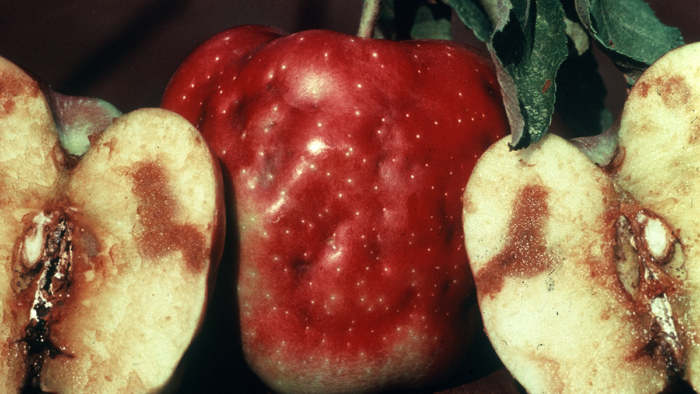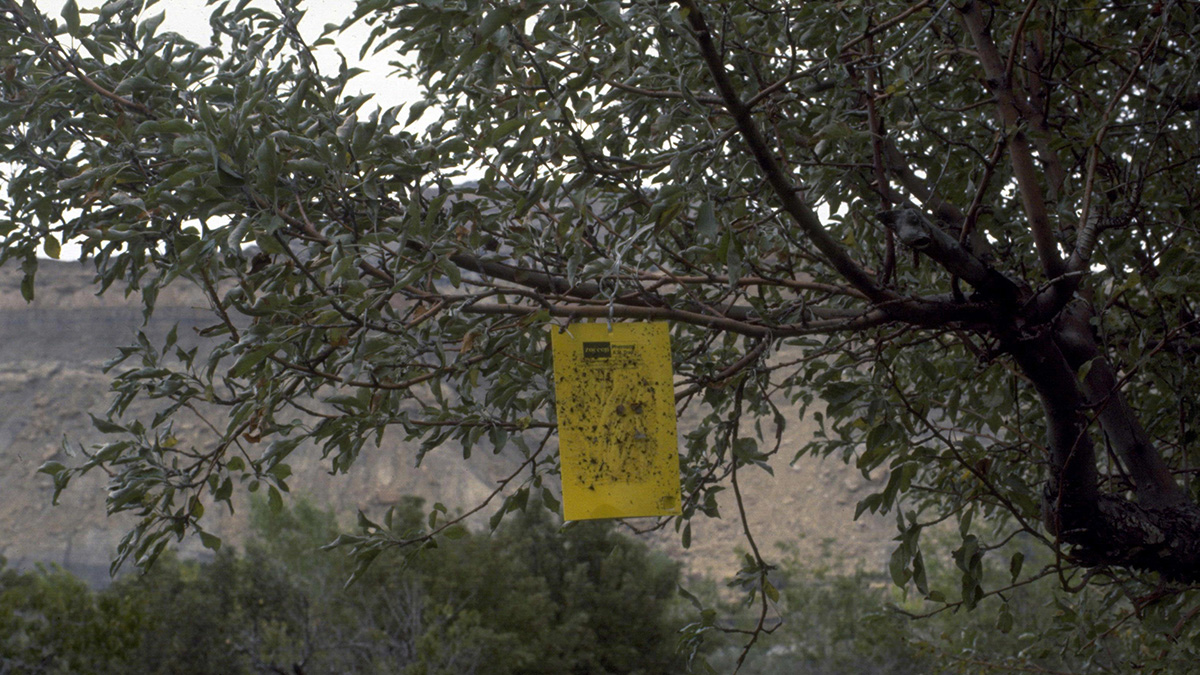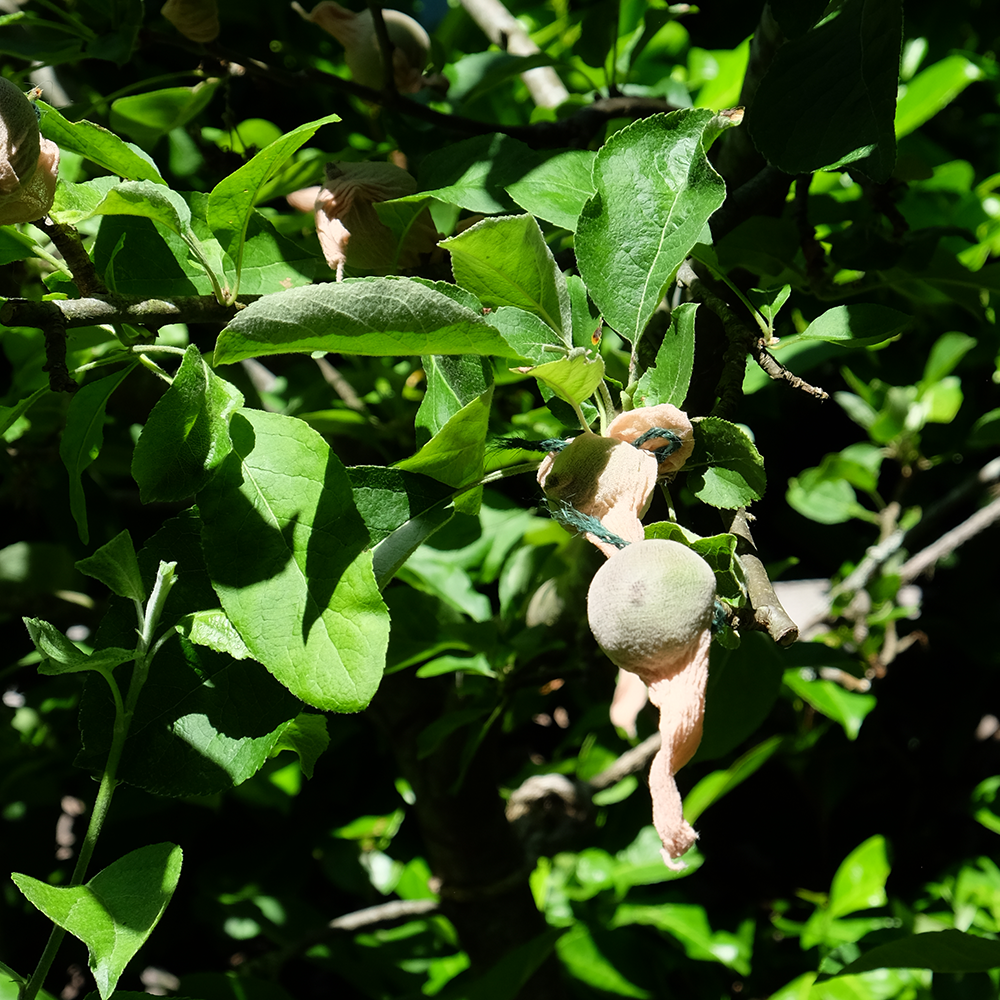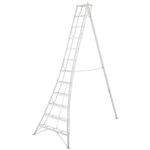Pest Control for the Northwest: Apple Maggot
Stop these insects from destroying your fruit crops from the inside out

As summer starts to heat up and everything edible starts to ripen, gardeners start worrying about apple maggots (Rhagoletis pomonella) in their apple trees. Long established in eastern North America, apple maggots moved into the West Coast within the last few decades and are spreading. They are tiny worms that tunnel through apples or other fruits, causing damage and rot. The adult is a fly that is about the same size as a common housefly. The fly lays its eggs just below the surface of the skin. After this, the pulp of the fruit breaks down and the fruit starts to rot.

Identification and prevention
If you have apples or any other kind of fruit, you may have apple maggots. Because apple maggots overwinter on the ground, it is important to target them early in the spring, starting in April. You can start setting traps at this time. This is mostly to determine if you have them in your garden. The traps are glue traps—sometimes resembling an apple—and should be hung around your apple tree. They can be cleaned off when full of flies and reused. One trap per tree will be needed to find out if you have apple maggots. They should be changed every 30 to 60 days through July. This is a prevention strategy and will not eradicate the pests if you already have them.

Three methods for treatment
There are a few ways to control and protect your fruit if you already have apple maggots.
Wrap fruit in thin fabric. It can be effective to put “socks” on each apple in a tree. These are pieces of fabric that stretch around apples and protect them from the fly coming to lay eggs. They are sold as maggot barriers or orchard socks. This is obviously tedious work and is only realistic if you have a small amount of fruit to deal with.
Use traps. Lure traps are also somewhat useful for treatment. These traps usually come in the form of triangle-shaped paper houses with a lure that traps the fly. Note that these are a different kind of trap than the sticky traps that are sold earlier in spring. Lure traps are sold later in the year and collect new flies that have just hatched from larvae. The difficulty with traps is that by the time you have trapped the fly, it has sometimes already laid eggs in the apple. The larva continues to feed on the apple until it crawls out of the fruit, falls from the tree, and turns into a pupa to overwinter in the ground. The traps will prove effective if they are changed out weekly and monitored constantly.
Spray often with organic products. Some pyrethrin-based sprays are effective but must be repeated (following labeling instructions) many times because they only work for a short time after spraying. Pyrethrin compounds are generally considered organic, and you can eat fruit that’s been sprayed with them. Keep in mind that because eggs are laid inside the fruit, spraying the outside of the fruit can only be somewhat effective. You will also find systemic products that can be used to treat the tree as a whole, either sprayed onto the foliage or drenched into the soil, but these products are not organic and may have negative environmental effects.
Stop the spread
It is important not to transport any homegrown fruit to areas where there are commercial growers. Bringing infested fruit into these areas can cause massive destruction of crops. There are many vacant lots in our areas that have old apple trees growing. They can be very old and have apple maggots every year. If you have trees on your property that you don’t harvest from or don’t want to bother controlling, it might be wise to cut them down.
—Susan Calhoun is the owner of Plantswoman Design in Bainbridge Island, Washington.
Fine Gardening Recommended Products

Berry & Bird Rabbiting Spade, Trenching Shovel
Fine Gardening receives a commission for items purchased through links on this site, including Amazon Associates and other affiliate advertising programs.

DeWalt Variable-Speed Cordless Reciprocating Saw
Fine Gardening receives a commission for items purchased through links on this site, including Amazon Associates and other affiliate advertising programs.
- 18.31 x 6.13 x 4 inches
- 1-1/8-inch stroke length
- Variable speed trigger with 0-3000 spm

Hasegawa Tripod Ladder
Fine Gardening receives a commission for items purchased through links on this site, including Amazon Associates and other affiliate advertising programs.







Comments
Log in or create an account to post a comment.
Sign up Log in